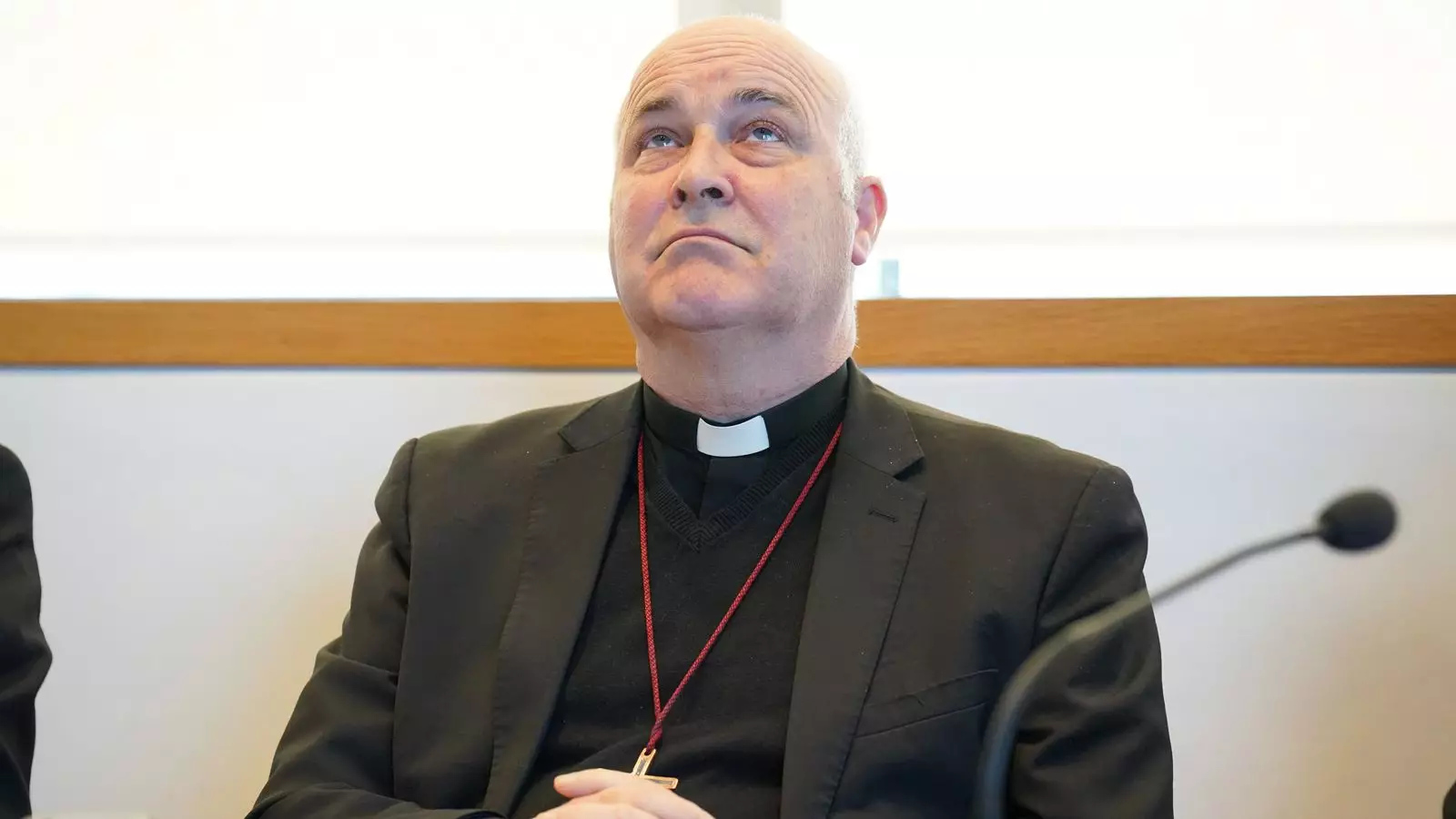This Christmas, the Church of England stands at a tumultuous crossroads, grappling with its identity and moral authority amidst a backdrop of abuse scandals that have tarnished its reputation. Archbishop of York Stephen Cottrell’s anticipated Christmas Day sermon serves as a pivotal moment for the institution, emphasizing a desperate need for introspection and change. The Church, long regarded as a bastion of faith and community, now faces intensified scrutiny, prompting leaders to confront uncomfortable truths about their failures.
Cottrell, who will temporarily lead the Church following Archbishop of Canterbury Justin Welby’s resignation, is reportedly set to urge the Church to “kneel in penitence.” This powerful imagery highlights the depth of the Church’s current crisis—its need to acknowledge past misdeeds and seek redemption for its shortcomings. As Welby exits in the wake of revelations regarding his handling of serial abuser John Smyth, the Church’s leadership appears fragile, with calls for greater accountability mounting not just at the top but across the institution.
Drawing on the central theme of the Christmas story, Cottrell is expected to articulate a vision where love supersedes power. He plans to reflect on the vulnerable nature of Christ as a child—a poignant reminder that history often sees the marginalized overlooked by those in authority. “In this vulnerable child, we see God,” Cottrell is likely to proclaim, urging the Church to embody this lesson through its actions. This call to action extends beyond mere words; it implores the Church to actively advocate for those in need, particularly the homeless, the hungry, and victims of abuse.
The archbishop’s remarks resonate during a season marked by warmth and giving. Yet, they starkly juxtapose the Church’s past failures to protect the vulnerable within its own ranks. Cottrell’s call to action poignantly reminds us that the message of Christmas should translate into tangible efforts to uplift the marginalized. His admonishment to “put the needs of others first” serves as a clarion call, urging Church members to engage with their communities empathetically and actively.
However, Cottrell’s impending leadership does not come without its critics. Survivors of abuse and their advocates have publicly condemned handling of cases like that of David Tudor, a clergy member who remained in positions of power despite serious allegations. These calls for accountability amplify existing discontent among those who feel the Church still harbors systemic failures in addressing misconduct. When church leaders falter in their protective duties, they risk alienating their congregants and disillusioning future generations.
With some bishops questioning Cottrell’s credibility in light of his past decisions, there’s a palpable tension within the Church hierarchy. His acknowledgment that certain cases “could have been handled differently” does little to assuage the hurt felt by abuse survivors. As Church leaders prepare for a festive season traditionally filled with hope, the specter of unresolved pain looms large—essentially asking, can the Church truly lead by example when it struggles to confront its own demons?
The Promise of a New Beginning
As Cottrell prepares to deliver his sermon, the future of the Church of England hangs in a delicate balance. His message of penitence and change is not merely a seasonal platitude; it’s a crucial invitation to re-evaluate the Church’s mission in contemporary society. The call for transformation must act as more than just verbal acknowledgment; it needs to be reflected in actionable change.
The contrast between light and darkness, hope and despair, encapsulates the essence of this Christmas. Bishop Rose Hudson-Wilkin, delivering a sermon in place of Welby, will echo sentiments of resilience and hope, perhaps emphasizing that it is through connection and compassion that the Church can navigate these troubled waters.
In sum, the Church of England faces an urgent imperative to redefine its role as a force for good—an initiative that must begin with humility and a sincere commitment to listening to the voices of those who have long been silenced. As the Church reflects on its past, it must simultaneously prepare for a new dawn where accountability, advocacy, and love reign supreme. Only then can it hope to rekindle trust and fulfill its divine mission as a beacon of light in a world often overshadowed by fear and darkness.


Leave a Reply